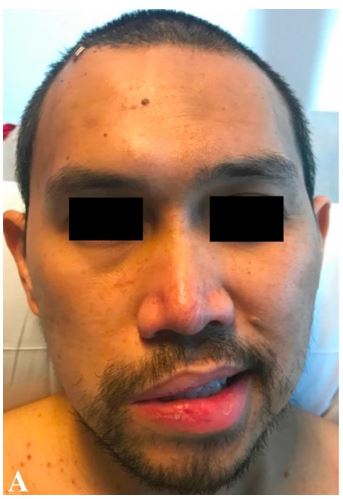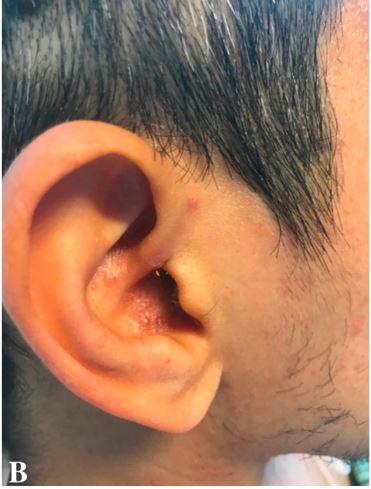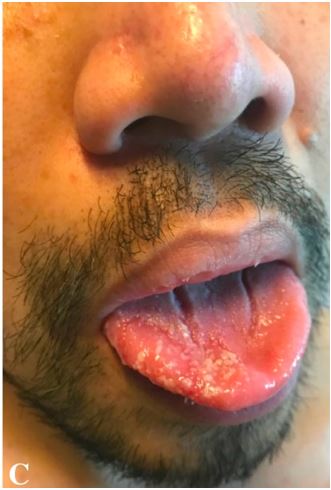Clinical Image - Volume 3 - Issue 4
Ramsay hunt syndrome in an immunocompromised patient
Jessica A. Kern1*; Reid P. Oldenburg2
1School of Medicine, University of California San Diego, La Jolla, California, USA.
2Department of Dermatology, VA San Diego Healthcare System and University of California San Diego School of Medicine, San Diego, California, USA.
Received Date : June 19, 2023
Accepted Date : July 17, 2023
Published Date: July 24, 2023
Copyright:© Jessica Kern 2023
*Corresponding Author : Jessica Kern, School of Medicine, University of California San Diego, La Jolla, California, USA.
Email: jkern@health.ucsd.edu
DOI: Doi.org/10.55920/2771-019X/1506
Clinical Image
A 37-year-old male presented to the emergency department with headache, confusion, right-sided facial droop, and painful rash. One month prior, he underwent staged resection of an intraventricular neurocytoma and was placed on a postoperative dexamethasone taper. Examination revealed weakness in the right cranial nerve VII distribution (Figure 1A), clustered vesicles with erythema in the right ear canal and conchal bowl (Figure 1B), and scattered vesicles on the preauricular cheek. The right anterior third of his tongue had clusters of pustulovesicles (Figure 1C). The patient was diagnosed with Ramsay Hunt Syndrome (herpes zoster oticus) and urgently started on IV acyclovir. Confirmatory PCR was positive for varicella zoster virus. The patient was discharged with improved mental status. Skin lesions resolved after a 2-week course of IV acyclovir and valacyclovir, but at his 2-year follow-up the patient had persistent facial weakness, vestibular symptoms, and photophobia. Recognizing Ramsay Hunt Syndrome early is crucial as antiviral therapy is most effective when initiated within the first three days of facial paralysis onset. Early treatment may prevent long-term sequelae including permanent facial muscle weakness, hearing loss, corneal scarring, postherpetic neuralgia, tinnitus, vertigo, and taste perception changes. Even with prompt recognition and treatment, immunocompromised patients are likely to have a more severe disease process and less complete recovery.




